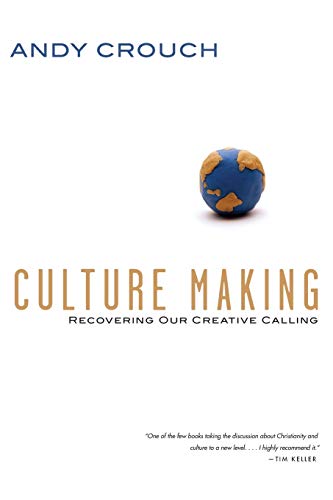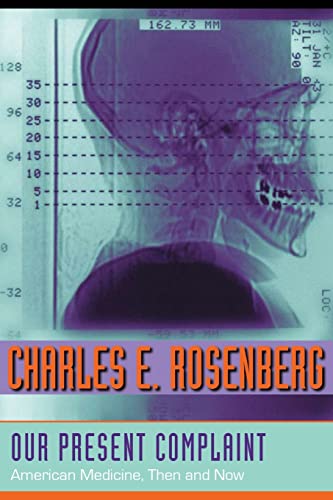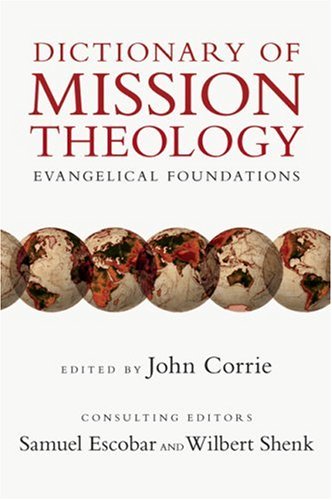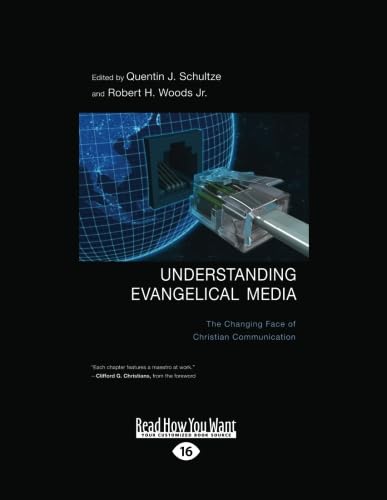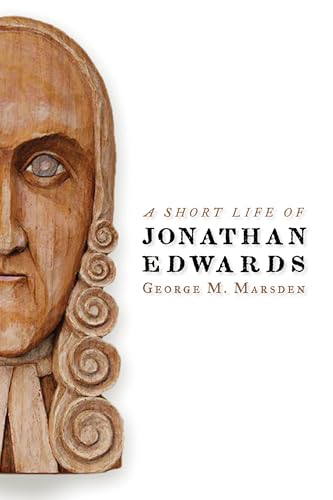Culture Making: Recovering Our Creative Calling
Written by Andy Crouch Reviewed By William EdgarAs an academic and a culture critic, I am not given to gushing over new publications. But Culture Making: Recovering Our Creative Calling, brought me pretty close to doing just such a non-scholarly thing! Odd, too, because of the subject. With so much coming out these days on religion and culture, one becomes a bit jaded about the possibility of something really fresh emerging. Well, this book is fresh, compelling, and engagingly written. More important, it goes deeply into its subject. Or should I say, subjects? For while there is unity to the book, it is wide-ranging, moving easily from theoretical to theological to practical considerations.
The central argument of the book, approached from many angles, is that Christians must move beyond lamenting cultural trends, or simply analyzing them, or even engaging culture. We must also create culture. In Part 1, Andy (I’ll call him by his first name, as he is a good friend) argues that just as culture remakes the world, so culture is what humans make of the world. So, what is this thing called culture? It is, of course, related to cultivation. Much as the farmer milks the cow or tills the soil, so our own culture-making is an investment in the environment we have been given. It can be long and slow, and progress may be elusive. But the work is crucial to defining who we are and what our calling is as God’s creatures. More centrally, culture is creation. Andy prefers this term over culture for a number of reasons. It is less antiquated or retro. “Creation” appeals to our contemporaries, despite its potential unhealthy penchant for novelty, which he strenuously argues against. “Underneath almost every act of culture making we find countless small acts of culture keeping” (p. 77), which amounts to discipline, the opposite of untamed creativity.
The link between the many helpful explorations of culture-making and the Bible is eventually made explicit in Part 2. Predictably, for someone who announces his devotion to Abraham Kuyper in the Introduction, Andy cites Gen 1:26–28 as the foundation of cultural calling. (It would have been cumbersome to point out, though it is interesting, that Kuyper rarely talks about culture in a positive way, because it was humanistic. Instead, he liked to use the expression “common grace.” While Kuyper was undoubtedly in the background, it is actually the work of Klaas Schilder [1890–1952] who promotes thinking about culture. In all likelihood it is Schilder who coined the term “cultural mandate.” See N. H. Gootjes, “Schilder on Christ and Culture,” in Always Obedient [ed. J. Geertsema; Phillipsburg, NJ: Presbyterian & Reformed, 1995], esp. pp. 35–40).
As Andy moves into the details, we are plunged deeply into the text and its import. He shows us how the image of God means that we should be as purposeful and energetic as God in his desire to create (p. 104). He takes issue with the pious sounding idea that only God can make something new, though he guards against an exaggerated equation between our work and his. He also underscores the relational aspect of creation, that is, the interrelatedness of all things as a reflection of God’s inter-Trinitarian personality. His critique of composers Pierre Boulez and John Cage, inspired by Jeremy Begbie’s aesthetics (See his Theology, Music, and Time [Cambridge: Cambridge University Press, 2000], pp. 179ff.), is that their music is ultimately not relational enough to be satisfying (p. 106). Creation is also celebration and should lead us to be joyful, not jaded (p. 107).
As biblical scholars know, Gen 2 is a more focused rendering of one aspect of the creation as recounted in Gen 1. From it we learn all about cultivation in the deepest sense. While Adam was to dress and keep the garden, there is no Rousseau-esque nostalgia for something called nature in the biblical text. The ultimate goal of humanity is to dwell in the city. Even though the journey to the city is horribly marred by sin, through Jesus Christ we are ultimately conducted into the greatest city of all, the New Jerusalem (p. 170).
While Andy takes us rapidly through the history of redemption, he is particularly eloquent as he pauses to describe Jesus’ approach to culture. The Lord’s preaching on the kingdom of God announces a profoundly cultural mission. Andy’s description of Christ’s death on the cross is for me the most powerful writing in a powerfully written book. As an evangelical, he can say that Christ did something no one else could possibly do: suffer the full weight of the human story of rebellion against God (p. 141). As a culturally self-conscious Christian, he adds that at the cross, an instrument devoid of any cultural life, all culture-gone-wrong dies. Here and throughout the volume we are warned against any kind of triumphalism or misguided notion of progress. Then at the resurrection a new world is born, one that gave Jesus’ disciples the ability to go into all the world and cultivate it. Springing off of N. T. Wright’s well-known emphasis on the early church’s successful transfer of Sabbath from Saturday to Sunday, which means all things are new, Andy explains that ritual is the most difficult of all cultural things to change. But all older “ritual” was changed, not by raw power, but by trust (p. 145).
If the book had ended here, it would have been a fine book. But because it goes on, it is a finer book still. In chapter 11, Andy tries his hand at scrutinizing an elephant in the room, the landmark study by H. Richard Niebuhr, Christ and Culture (1951). Niebuhr’s typology, dividing theologies of culture into five groups (Christ against culture, Christ of culture, Christ above culture, Christ and culture in paradox, and Christ transforming culture), set the agenda for much of the discussion in the mid-twentieth century. After appreciating the work and approvingly noting that Niebuhr favored the final view, “Christ Transforming Culture,” more than any of the others, Andy goes on to critique the book on a number of fronts. First, it is dated. Niebuhr’s Christ seems stilted, lacking humanity and compassion. His Culture, in the singular, overlooks the dynamic feature of cultures with their multiple gestures. Second, there is a tacit connection between “Christ” and “Christians” that should have been uncoupled, as it does not follow that Christ’s approach to culture, as he governs world history, is the same as that of his followers’ work, which is more local, modest, and fallible. Finally, while Niebuhr rightly underscores the fragility of culture, he could have stressed its joys and the way Christ by grace gives us back the culture we have ruined by sin.
Finally, Part 3 articulates the author’s approach to calling. As it is for Christians and culture studies, their emphasis on vocation is emerging as prominent and significant in recent times. It opens with a very challenging chapter entitled, “Why We Can’t Change the World.” Andy does not deny the possibility of making a difference; indeed, that is the book’s principal subject. But he takes issue with the self-assured and aggressive ways in which many attempt to be change the world. He points out that sociologists have now made us aware how much the world actually changes us. Here and throughout we are cautioned against hastily measuring how much lasting change there really has been. Some of yesterday’s bestsellers are all but forgotten today, whereas some of yesterdays ignored works are today bestsellers. (J. S. Bach’s output was not terribly influential until at least eighty years after he passed away.)
These thoughts and so many more are simply beautifully put. Are there any action items? Sure. For one thing we can try to bring a little humanity into our fast-moving world. For example, the Charlotte airport set the trend on placing rocking chairs and affordable wine bars in its halls, making the place just a little more home-like for people usually rushing around, worried about their next flight. In another example, Andy compares the route to power of Lady Diana with Mother Teresa, who both died within a week of each other. The obsession people had over Diana way overshadowed their interest in Teresa, possibly because they had some sense of how dangerous power can be (p. 219). He discusses the humbling of Ralph Reed and his Christian Coalition, noting that their alliance with the more right-wing Republicans got them into partnerships they did not need, such as the greedy Jack Abrahamoff. Instead of the allure of power, Christians should be attracted to the allure of service, not as high profile, but a lot more effective and God-honoring. Perhaps Kuyper could have served here to remind us that service does not have to mean political inactivity. While Andy clearly emulates Gary Haugen and the International Justice Mission, I wonder whether he has equal respect for the work of James Skillen and the Center for Public Justice. He does list their web site in the bibliography. At any rate, service and humanizing are the most forceful ideas for him. Movingly, for example, he relates the story of “Smokey Mountain,” a garbage heap in Manila that acquired dignity and an improved quality of life through the humble preaching and service of a Roman Catholic priest.
Change is modest but powerful in unexpected ways. It’s about sowing seeds, working in small groups, breaking down the sacred/secular rift which removes grace from all of the realms of life it is meant to provide for. Change is about setbacks and temporary failures. Endearingly, Andy discusses Jimmy Rollins, the shortstop for the Philadelphia Phillies baseball team. (British readers of Themelios will forgive this allusion to the quintessentially American sport!) He is a nearly perfect athlete, getting on base 331 times out of 1,000 in his career thus far. But that means he “fails” two-thirds of the time to get on base. Christians who “take up their cross” to follow Jesus should know better than to expect easy triumph all the time. When we grasp this, then truly can we “make something of the world,” the last line in the book. A four-page appendix on Rembrandt’s Artist in His Studio encourages us to posture before the canvas of the world and make beauty out of ashes, much as Moses hoped for in the prayer of Ps 90.
William Edgar
William Edgar is Department Coordinator and Professor of Apologetics at Westminster Theological Seminary in Philadelphia, Pennsylvania.
Other Articles in this Issue
For Ezra had set his heart to study the Law of the LORD, and to do it and to teach his statutes and rules in Israel (Ezra 7:10)...
Salvation History, Chronology, and Crisis: A Problem with Inclusivist Theology of Religions, Part 2
by Adam SparksA fundamental requirement in an inclusivist understanding of the relationship between Christianity and other religions is evidence of God's salvific activity outside of any knowledge of Christ...
The Center of Biblical Theology in Acts: Deliverance and Damnation Display the Divine
by James M. Hamilton Jr.Acts 1:1 opens with a reference to what Jesus "began to do and teach"1 recounted in the Gospel of Luke, indicating that this second volume will carry the narrative of Jesus' actions and teachings forward...
Shared Intentions? Reflections on Inspiration and Interpretation in Light of Scripture’s Dual Authorship
by Jared ComptonIt was not too long ago that Kevin Vanhoozer answered the question Is There a Meaning in This Text? by relocating meaning in authorial intention,1 doing so even more robustly (not to mention, evangelically) than E...
The original question I was asked to address was "How does our commitment to the primacy of the gospel tie into our obligation to do good to all, especially those of the household of faith, to serve as salt and light in the world, to do good to the city?" I will divide this question into two parts: (1) If we are committed to the primacy of the gospel, does the gospel itself serve as the basis and motivation for ministry to the poor? (2) If so, how then does that ministry relate to the proclamation of the gospel?


